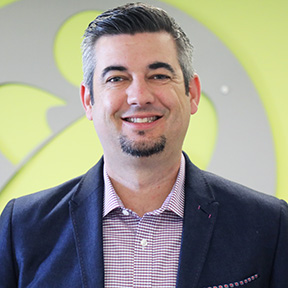
Brenda Diederichs, CHRO/Assistant CEO, Riverside County
On this episode of The 3rd Question, we talk to Brenda Diederichs, the CHRO of Riverside County about top-to-bottom organizational transformation, her innovative "passport program," Tik-Tok and so much more!
Video Transcript
Ryan James:
Hello and welcome to The Third Question, a video interview thought leadership series with public sector leaders from around the country. I'm your host, Ryan James. And today we are lucky enough to be joined by Brenda Diederichs. Brenda is the assistant CEO and CHRO for Riverside County, California. So, Brenda, thank you so much for joining us today.
Brenda Diederichs:
Ryan. Thank you for having me. I'm really excited to be here.
Ryan James:
Awesome. Well, before we get into our three questions, I'm just going to ask, if you could give us a quick introduction about who you are, a little bit of your history, your role there with the county and maybe about the county itself.
Brenda Diederichs:
Okay. Thank you for that. Again, I'm Brenda Diederichs and I am working as the assistant CEO over at Riverside County. I've been there two years. I left another large county in California, Orange County to come here. So I worked there for two years, worked at another County. I started my career at San Bernardino County and I moved to LA from there. And so I got terrific training at San Bernardino County, I felt very lucky to have landed there when I did.
Ryan James:
Awesome. And what about...I know Riverside County is one of the largest counties in America. Can you tell me a little bit about your employee population?
Brenda Diederichs:
We have roughly about 20,000 employees; we have 45 departments; we have a university health system that we run. So we have our own medical center with about 440 beds. And of course, we have our sheriff's department...public health is very busy these days. But just, we cover just about every service that you can imagine to provide to our residents.
Ryan James:
Yeah. Awesome. Well, thanks. All right, well, let's get into these questions. So your first question is this, as the CHRO for Riverside County, what have been...now that it's been two years...some of your top initiatives over these two years and then, has our current pandemic with COVID-19 affected the initiatives at all, have they changed the timeline of those or maybe sped up some of those goals themselves?
Brenda Diederichs:
Since I've came to the County, when I stepped in in my role just two years ago, they were in the middle of transformation. It was literally labeled transformation on pretty much every level. It had to do with the technology that we were using, the systems that we were using, they were all in transition, the organization structure of HR was under transition, and it was moving from a decentralized teams, service teams out to the departments kind of system, through a centralized service system.
Brenda Diederichs:
And it hadn't all been completed. I had a incomplete organizational chart, but I did inherit--when I walked in--wonderful employees, they are very creative, they're very dedicated and have done a wonderful job of helping me through this transition. What I can say is that in a year and a half, we had put together an org chart with centralized functionality.
We have already engaged in upgrading every technology in our department, except for one, which is the performance management side of the house. And we're going to do that starting hopefully next year, because we really do need that to align with the teleworking that's been happening all of a sudden with the pandemic.
We've also created with centralization a passport program, which I consider a succession planning program within HR. And it literally has a passport with stamps and with destinations and the gates and everything. And we have people sign up for projects in other divisions, so that way they can increase their HR knowledge and skillset to become a generalist, regardless of the fact that they're now engaged in the centralized activities.
Ryan James:
I love it. That's a great way to make specialists become generalists, I love that.
Brenda Diederichs:
Of course, I have all the pandemic activity as everyone does. People need to social distance and can't be in the office and so on. And my day is redirected constantly throughout the day with pandemic-related issues. However, I still have all these upgrades that are going on and they're all sticking to schedule. So we've even revamped our entire HR budget because we are a internal service fund department, and all of our money is to come from our billing out to all the other departments for our services. And we've even been able to reduce that by $6 million, and still provide the same services.
Ryan James:
And keep service levels the same. That's awesome.
Brenda Diederichs:
It's been challenging, but we can do it.
Ryan James:
We know that COVID is going to keep stretching those budget dollars more and more probably over the next 12 to 24 months.
Brenda Diederichs:
What we did this year, as far as redoing our budget for two reasons. One we needed to, because we are an internal service fund. Secondly, I want it to serve as a good example in the public space that government services could be provided economically and still be very high level, very good quality. And quality doesn't have to be sacrificed because you've snipped a little at the budget.
Ryan James:
Yeah, I like that. All right. Well, let me ask this question, because you have a unique history and leading to the largest counties in America from an HR perspective. So in leading these counties, Riverside, Orange County, what have been some of the biggest challenges that you've seen, especially as we see about five generations in the workforce today. From that multigenerational employee workforce, like specifically empowering employees, communicating with employees, educating employees, when you have such a broad spectrum of age ranges.
Brenda Diederichs:
One of the things I start with when I take over a group is working on what is our vision, what is our purpose, what is our value to the organization, and how do we all fit into that? That once you describe what that is, and there's some level of agreement on that, and a picture of what that looks like, everybody's role has a way to fit into that, and add value to that vision, if you will. And the carrying out of that to the whole organization.
Brenda Diederichs:
I really focus on them as individuals, because I may have a millennial and everybody says, "Oh, they all need a trophy." Well my millennials could come from very poor families where they never got to participate in anything where they could even get a trophy. So that person isn't seeking trophies, they're trying to survive and do their best to make their family proud and cut a path for their family, no different than a boomer did.
So I really try to look at the individual and where they're coming from and what their needs are. And I noticed that the traits that we attribute to particular generations of folks, they're present in any generation. If I have entitled, I have entitled boomers, people that want to push back, talk back, whatever, I have that in every group.
I have timid in every group. So I instead say, what do I need to do to help my employees be able to grow to their best self? And I'll give an example. I have a, I want to say millennial group that works on my social media team/communications team. When I got there, they were putting out very little information about us, our website just had that white bulletin, if you will, out there that people were supposed to get all excited about when they saw it and apply to the county.
And so I sat down with them and I go, "Well, why aren't we doing it like this? What's going on?" "Well, we're not allowed to weigh in on the website for the recruitment." And I go, "Okay, well, what would happen if we change that? What could you do to make this better?" Next thing I knew we had Tip Tuesday. The next thing you know, I had employee profiles where we did a day little interview vignette with a variety of workers from out throughout the County.
And the next thing you know, we have stories. We have human interest stories on our site that people are commenting on, and I would go to a function all throughout the Southern California region and people will go, "Oh my gosh, your social media folks are on fire. It's amazing. It's awesome. And your Tip Tuesday and your intern, and you've got to hang onto these people." And I go, "Trust me, I am going to."
But I use that as an example of igniting that kind of freedom in all of my teams and say, "How can you do better? What would better look like for you, and what can I do to support that?" And it really has launched a lot of independent thinking. Things are getting done without my having to personally shepherd them through, so it's exciting.
Ryan James:
Hey, before I go onto the third question, for any of our viewers who want to see what that website looks like, why don't you plug Riverside's website really quick?
Brenda Diederichs:
It's rivco.com and it's rivco1HR, literally with rivco1, the number one HR, and that will bring you to our website. And then we have social media on Facebook, Twitter, Instagram, and I did a Tiktok with one of my employees.
Ryan James:
We have gotten to the third question. And over my shoulder, I've got different time machines that I use for this. There's the Tardis, the DeLorean... And I'm going to use this one for you today. It's The Time Machine by H.G. Wells. So if I was Brenda, to give you that time machine, and as somebody who's basically had your whole career in public service, and you were able to go back to any point in your career and give yourself advice or change maybe how you did things, what would that be and why?
Brenda Diederichs:
As I thought about this, this may be a hybrid answer, meaning it combines personal life and professional life. And especially for our young females. It was challenging when I started up and was having a family, and having to do the balance between work and home. And I probably would have done a better job of balancing more equally work and home.
I think I leaned a little bit too much to work, and may have missed some things related to my family that does affect you at work, because it affects how you feel about work. It affects your enthusiasm for work. And so I believe that when people come to me and say, "Brenda, I need time off to do this with the family." I go, "Well, family first." You need to be happy. You need to feel safe that your family can matter, that you can have one and not have to hide it.
The other thing I feel is that even being with my kids in the variety of situations that they were, whether it be at a school event or at a personal family event, interacting with them, really spark creative juices, because kids are very creative, they see the world differently and it keeps my brain flowing in that--you know, twist a little bit and see it from a different point of view or a fresh point of view, where they're looking at something that they have not seen before.
And then they tell you what they think it is, and it's different than what you know it to be, but they're right. And so it opened my mind to being able to think about things from the point of view of each of my employees, and try to put myself in their experience and in their level. So I think the balance actually does support career growth, career creativity, and career understanding and empathy.
And so, I do believe in that balance and that's something that I would have given myself a little bit more permission to do when I was younger. With my career spanning such a number of years now, I can see where it's benefited us socially and professionally to move down the continuum of recognizing and appreciating that people have a whole life, not just a work life.
Ryan James:
Got it, got it. That's great. And you know what? COVID has, I think forced a lot of us to figure out what some of doing things a little bit differently might be as we sit here in our homes and ...
Well, Brenda, thank you so much for joining me today. I really appreciate you taking the time to share some of your insights. For any of our viewers who want to see any more interviews like this with other public sector thought leaders, you can go to thethirdquestion.com. You can subscribe there, and as we release these interviews, you'll be notified. But Brenda, thank you so much. I hope you have a great rest of your day and week, and really appreciate the time.
Brenda Diederichs:
Thank you so much, Ryan. Thank you for having me.

